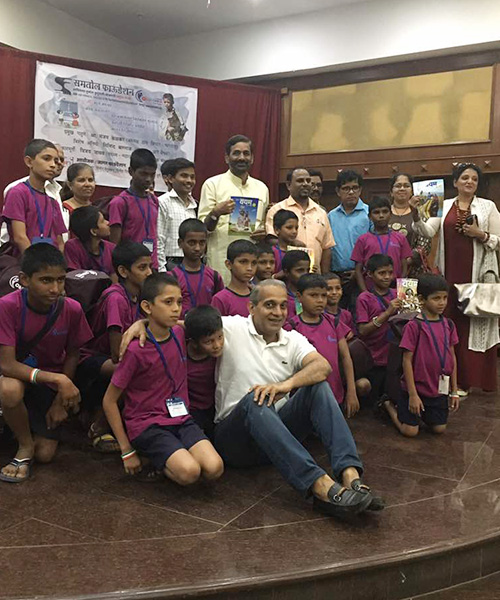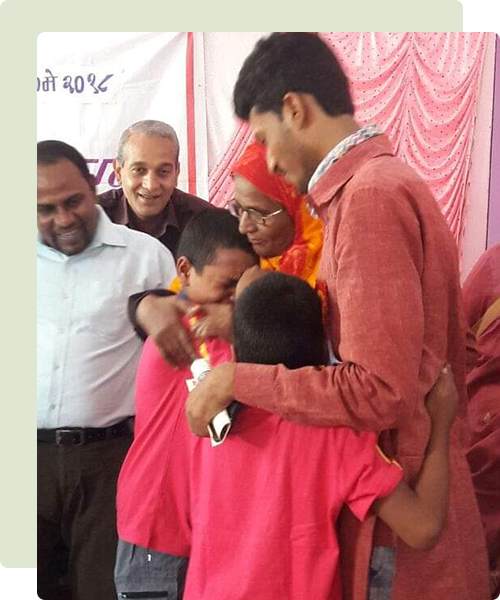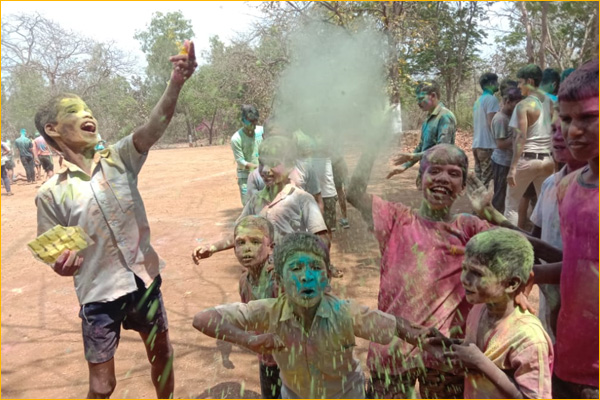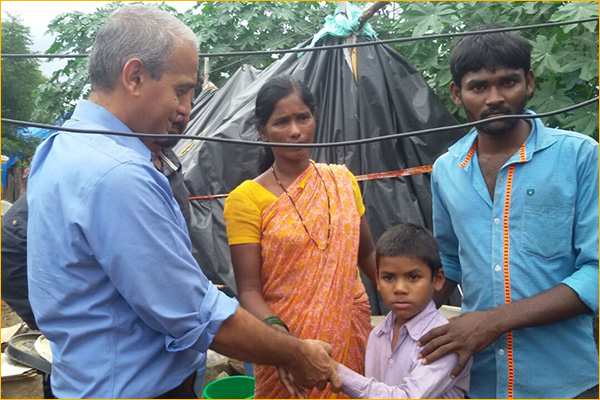While some might describe what we do as searching for and working with lost children, we look at it differently. For us, our work each day is not about a lost child as much as it is about a child found. A child found, even in a mess, is a child found.
The children we find are, in some ways, similar. While they have had varied appalling experiences being out on their own, they each come from the same place – home. When we find them, they are usually dirty, exhausted and most definitely hungry. Out on the streets, these children have gotten pulled into performing extremely hard labour for a pittance. At a time when their growing bodies need all the nourishment they can get, they barely manage to scrape together one meal a day.
Along with hunger though, come other, more deplorable challenges. It is a known fact that children out on our streets abuse substances such as whitener, shoe polish and tobacco. What is lesser known is that one of the main reasons they get into drugs in the first place is to suppress their hunger. The drugs they consume end up not only ruining their bodies but also leave long-term scars on their psyches. It takes months and sometimes years to help rebuild their confidence in themselves. What they need in addition is extensive care and guidance coupled with a formal education and access to vocational training.
According to the Missing Bureau Crime Report, 1 child is registered as missing every 8 minutes and 200 children arrive at Mumbai’s stations alone each day. There are a number of known reasons why children typically flee their homes including
At Children Reunited, our aim is to reunite each child we find with his family. Regardless of the potential for a reunion with family, we work towards reuniting the child with his own best self. We equip him with the skills he needs to be self-sufficient as he turns into an adult. While the process appears straightforward, it is fraught with challenges at every step. Our volunteers, often unpaid, work tirelessly towards this cause. It is the sheer joy they experience on reuniting even one child that makes it worth their while.
We reunite the children we find through the following inter-dependent three-step approach:


Our volunteers’ work commences with identifying a runaway child on the platforms of junction railway stations. Children who flee their homes have statistically been found to board trains and land at junction railway stations. While the work of identifying a runaway child appears easy, the actual task of taking custody of the child is a challenging one. In certain cases, the children are so accustomed to being on their own that they refuse to come along. The volunteers approach the child, engage him conversationally and most importantly offer him food. Only once they have built a connection do they start to probe the child for information.
When the child consents to accompanying our volunteers, he has to first be registered at the nearest railway police station. Following this the child undergoes a medical examination at an appointed government hospital in accordance with the registered number given by the police station. In parallel, our volunteers attempt to trace the child’s family and/or relatives.
The newly found children naturally require accommodation until the root cause of their running away is ascertained. The government has built temporary shelters and observation homes for them, but these often fall short in both capacity and care. Once the root cause is identified, our volunteers decide where the child should stay – in the temporary shelter or in a government-run observation home.
We have additionally established a temporary shelter as well in Thane with the help of the commissioner of Thane Mahanagar Palika, Mr. Nandkumar Jantre. On a daily basis, 3-5 children live there with our volunteers whereas the shelter can house up to 15 children. We care for the children in this shelter until their family collects them or a volunteer visits their hometown. Each month, 15-20 children meet with their families through this temporary shelter.
We welcome the children into our shelter with open arms and offer them a space where play, friendships and of course, wholesome food await them. Such an environment is essential to help soothe them and get them to start to feel like themselves again. At our shelter, we observe the children closely and talk to them often in an attempt to learn more about them. The children typically lie at first given their fear of either being reported or sent back home. Their experiences on the street too may have left them jarred making it harder for them to trust us. On our part hence, both direct and indirect questioning and discovery continues throughout their stay with us.
While some children get rehabilitated during this time period itself, some others may need extra care. Our Manparivartan Shibir (camp) is for children who have run away from home more than once, have been living on the station for more than 2-3 months or those with a moderate addiction. After obtaining complete custody of these children, we bring them to our camp site in Mamnoli, Kalyan. We conduct a residential camp spread over 45 days with a total of 4 such camps conducted annually. Our camps are designed to prepare the children to reunite with their families as well as help them become better citizens in the long run. We counsel the children and help them work through their challenges. We endeavour to instill good values in them and promote feelings of love towards their families. We give the children non-formal education as well to help them understand the importance of education for their future. Our camp offers them a safe and supported environment within which they are free to learn more about themselves and reflect on how they wish to live their lives.
As part of the camp, we also conduct extensive counselling for the children via professionally trained and qualified counsellors. It is to be expected that children who ran away from home are likely to resist going back. We therefore spend considerable time and exercise care to make them feel comfortable.


Some of the children are reunited with their families directly from our temporary shelter while some others are escorted to their home states. For the children who go through the Manparivartan Shibir; however, we ask them about their families extensively during counselling. Through several such discussions, the children start to reveal their family details. These are promptly conveyed to the contact person of the respective state working for us. A critical aspect of the reunion involves investigating the background of each child and ensuring his home is safe and healthy enough for him to return to.
When the child’s family members are found, they are asked to attend the farewell ceremony held on the last day of the camp. The family members too are counselled by us on what changes they need to make to help the child feel welcome and prevent him from running away again. We thus guide both the children and their families on how to live together harmoniously. The day of the reunion is planned as a children’s gathering with a dance drama show both prepared and performed by the children. They wholeheartedly perform with their friends completely unaware of the presence of their families. At the end of the show the parents meet their child in what is often a very emotional time for them all. The parents are delighted to have their children back and the children too by now want to go back home.
A very small number of children end up going to boarding schools instead as per the verdict for the sake of their future. Some children, especially those older than 15, are unwilling to return to school. For those children, we offer vocational training including a mandatory driving course so that tomorrow they are able to support themselves financially. Regardless of where they finally go, we continue to work to help reunite them with their own inner bliss and that’s what keeps us going.